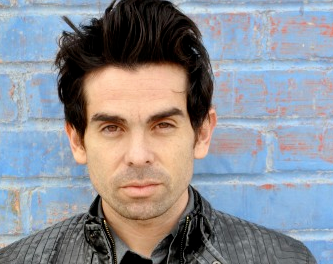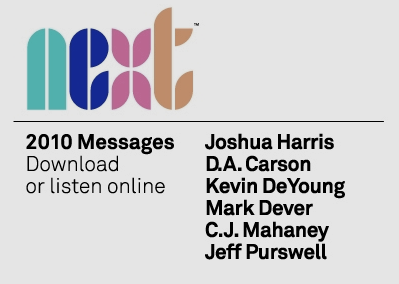My dumb thoughts must begin on the foundational principle of a little splotch of ink.
The Question Mark: "?"
Yes it looks kind of weird, but it's quite powerful. The question itself is really a tremendous tool. Often we think of questions as the show of our weakness, because we often ask things pertaining to what we don't know. "What time is it?" for example. But they can also be used to engage: "What do you think?". There can be deep meaning before that funny, little punctuation.
In fact, questions are really an interesting inter-social dynamic... aren't they? They demand a contemplative interaction between people. When one is thrown at you, you need to consider yourself engaged. You are now personally involved, whether you choose to acknowledge the question or not, answer it or not, or even think through your answer or not. You have a responsibility to the one who has demanded your contemplative response.
Imagine the greater responsibility when you are asked by one with authority... an authority who is well knowledgeable... an authority who is above reproach... respected... perfect. God is quite the One to be asked a question by and to feel such a weight at your need to answer Him.
Imagine needing to answer God if He asked you these:
- What have you been doing?
- What are you thinking?
- What are you loving?
Try to shake off (if you're like me) the deep fear at your answers to those for a moment and rethink how personal and engaging those are. They invoke a great inter-personal connection; they are relational. Not only that, but the answer is wanted, and the questioner is awaiting it's arrival. But what happens when the question is asked with no expectation of an answer to be given? In this event, we find ourselves face to face with the awkward rhetorical question.
A question can actually be intensified in it's demand for contemplation when the answer is never intended to be spoken. Why? Often because the answer is apparent through a great weight and amount of proofs that lie behind the answer itself. The Bible is riddled with rhetorical questions that deem no communicated response because the answer has such weight behind it, making it adequately apparent:
- "Who can count the dust of Jacob...?" (Num 23:10)
- "O Lord GOD... what god is there in heaven or on earth who can do such works and mighty acts as Yours?" (Duet 3:24)
- "...if a man sins against the LORD, who can intercede for him?" (1 Sam 2:25)
- "...[God] is unique and who can turn Him?" (Job 23:13)
- "Who can say, 'I have cleansed my heart, I am pure from my sin'?" (Prov 20:9)
- "For who can eat and who can have enjoyment without [God]?" (Eccl 2:25)
- "The day of the LORD is indeed great and very awesome, And who can endure it?" (Joel 2:11)
God spoke these questions through writers inspired by His Spirit. They all invoke a sizeable amount of contemplation when asked. Sometimes, though, God himself asks questions. But why?
I ask questions often because I don't know the answer. I'm not very smart to throw out rhetorical questions and get my audience thinking along with me, so I stick with the usual stuff, like: "Where are my sunglasses?". But why does God ask questions? I think it's because I'm dumb.
God knows everything, so we know that He does not ask questions for the sake of Himself, but for us. Take God's first question for example:
"But the LORD God called to the man [Adam], "Where are you?'" (Gen 3:9)
God didn't lose His creation. He knew where Adam was and why, yet He still asked. And His question prompted an amazingly odd answer.
"He answered, "I heard you in the garden, and I was afraid because I was naked; so I hid." (Gen 3:10)
Our first thought should be: "Too much information, Adam!" Maybe our second should be: "You didn't answer God's question." Adam didn't say where he was (just that he 'hid'); instead he said why he was hidden. God's question drew out a deep, complex contemplation from Adam; one that made Adam fearful, and quick to explain the situation to his Father because he saw his error and sin. God needed Adam to think, because Adam had been... well.... dumb.
That's just one example of many. Now let's look at my friend.
Jesus asked lots of questions. But again: why? He knew the answers. Again, I think it's because I'm dumb.
Anytime Jesus would ask a question, it was for our benefit... mainly because we need to think about something important (often things relating between us and Him: ie - His gospel that we need). We can learn from what He asks, and we can learn from what is answered. You could, in a way, see each question that He asks as a rhetorical question because the answers that He seeks aren't needed for Himself but for those who would hear (or even think) of the answers.
- "Jesus asked them a question: 'What do you think about the Christ, whose son is He?'" (Matt 22:41-42)
- "He questioned them, saying, "Who do the people say that I am?'" (Luke 9:18)
- "And again He said, 'To what shall I compare the kingdom of God?'" (Luke 13:20)
- "So when He had washed their feet, ...He said to them, 'Do you know what I have done to you?'" (John 13:12)
Jesus asked what a demon's name was (Luke 8:30). He asked who the arresting mob was searching for (John 18:6). He asked why an officer hit Him (John 18:23). What do these mean?
Jesus wants us to know something and to think about it. Not because we are good thinkers, but because we're aren't. Not because we have the answers, but because we don't. Not because we are knowledgeable, but because we're foolish, weak, base, etc (1 Cor. 1:26-29). Ultimately, He questions so that we would believe in Jesus as the Christ, Son of God.
"So they removed the stone [from Lazarus' tomb]. Then Jesus raised His eyes, and said, 'Father, I thank You that You have heard Me. I knew that You always hear Me; but because of the people standing around I said it, so that they may believe that You sent Me.'" (John 11:41-42)
God asks us questions because we need to contemplate Him. We need to contemplate Him because He is holy and we aren't. We need to see Him as holy because we are vile and sinful. We must see ourselves as sinful because we need His righteousness. And we must think about this needed righteousness because salvation from sin is serious, specific, personal, eternal, and demanding. There is a cost to be counted to follow Jesus. Every question He asks should root us in some way back to His gospel for a response and contemplation. That contemplation before our salvation should be to repent; afterward it should be to worship.
Contemplate with me, a deep question from an attention-demanding Questioner:
"[Jesus] said to him the third time, "Simon, son of John, do you love Me?" Peter was grieved because He said to him the third time, "Do you love Me?" And he said to Him, "Lord, You know all things; You know that I love You" Jesus said to him, "Tend My sheep."
skip to main |
skip to sidebar
recent comments
Categories
- A.W. Pink (2)
- accountability (6)
- Albert Mohler (4)
- Alistair Begg (1)
- Amillennialism (1)
- amusement (1)
- apostasy (1)
- Arminianism (2)
- Atonement (2)
- Attributes of God (2)
- authorial intent (1)
- baptism (1)
- being called (5)
- blessings (4)
- boldness (2)
- Books (3)
- branch (1)
- c.j. mahaney (5)
- Calvinism (6)
- Chelsea Kauflin (3)
- Christ (12)
- Christ our treasure (3)
- Christ's love (2)
- Christian Education (1)
- Christian Hedonism (1)
- christlikeness (5)
- Christmas (4)
- church (10)
- Church discipline (1)
- Church History (2)
- Church Merge (1)
- Church Planting (2)
- comfort (1)
- communion (1)
- Condemnation (1)
- Conscience (1)
- contemplate (1)
- Conversation (1)
- Creation (1)
- cross (16)
- D.A. Carson (3)
- Death (2)
- discernment (4)
- Discipleship (1)
- Discipline (1)
- Dispensational Premillennialism (1)
- Doctrine (1)
- Doctrines of Grace (13)
- doubt (1)
- douglas moo (1)
- Dr. Michael Horton (1)
- drinking (1)
- Effectual Call (1)
- Election (5)
- emerging church (1)
- encouragement (11)
- Entertainment (1)
- evangelism (23)
- Exegetical Fallacies (1)
- Facebook Complaining (1)
- faith (9)
- Faithfulness (1)
- Fathers (1)
- fear (5)
- Fear of God (1)
- fellowship (10)
- figs (1)
- focus (4)
- forgiveness (5)
- Francis Chan (1)
- Free Stuff (2)
- free will (1)
- fruit (4)
- full-time ministry (7)
- giving (3)
- God's glory (13)
- God's goodness (3)
- God's grace (21)
- God's Love (15)
- God's name (8)
- God's power (13)
- God's Sovereignty (1)
- God's will (8)
- God's Wisdom (2)
- God's word (27)
- Good Friday (2)
- gospel (36)
- Gospels (1)
- grace discipline pride selfishness (1)
- Great High Priest (1)
- Heaven (1)
- Hell (1)
- heresy (1)
- Historic Premillenialism (1)
- history (1)
- Holy Spirit (5)
- homosexuality (1)
- Honoring God (5)
- honoring your parents (1)
- humility (14)
- Humor (3)
- hymns (3)
- hypocrisy (1)
- idolatry (1)
- Imputation (2)
- Incarnation (1)
- integrity (2)
- intercession (1)
- Interpretation (1)
- interview (2)
- Irresistable Grace (5)
- Isaiah (1)
- Jesus (10)
- jim elliot (1)
- Joey Mejia (1)
- John Bunyan (1)
- John Calvin (1)
- John MacArthur (2)
- John Owen (4)
- John Piper (9)
- John Stott (1)
- Joseph (1)
- Joshua Ritchie (99)
- Joy (2)
- justification (1)
- kingship (1)
- Law (3)
- Lawkeeping (1)
- ligon duncan (2)
- Lordship (2)
- love (22)
- Loving God (2)
- mark dever (6)
- Mark Driscoll (1)
- marriage (4)
- Martin Luther (2)
- Matthew (7)
- mercy (5)
- Metanarrative (1)
- Ministry (6)
- missions (8)
- Money (1)
- Mormons (1)
- Mothers (1)
- Music (1)
- N.T. Wright (1)
- Narrative Theology (1)
- New Exodus Theology (1)
- New Perspective On Paul (1)
- Noah (1)
- Obedience (22)
- open theism (1)
- Parables (1)
- Parenting (4)
- passion (3)
- Pastors (2)
- Paul (1)
- peer pressure (5)
- persecution (8)
- perserverance (2)
- Pharisees (1)
- phil johnson (1)
- Possessions (1)
- Postmillennialism (1)
- poverty (1)
- praise (9)
- prayer (32)
- Preaching (7)
- preciousness of Christ (6)
- pride (2)
- priorities (7)
- promises (3)
- Prosperity (1)
- Psalm 115 (1)
- Psalm 73 (1)
- puritans (3)
- Purpose Driven Life (1)
- question (1)
- questions (3)
- Quote of the Day (4)
- Quote of the Week (4)
- radio (1)
- Reconciliation (2)
- redemption (1)
- Reformation (2)
- Reformed Theology (5)
- regeneration (4)
- Regulative principle (1)
- relationships (1)
- repentence (6)
- requests (7)
- responsibility (2)
- Resurrection (1)
- righteousness (5)
- risk (1)
- Rob Bell (1)
- Romans (3)
- Sacred Sandwich (1)
- sacrifice (10)
- salvation (13)
- sanctification (33)
- scripture (13)
- semi-pelagianism (1)
- Sermons (7)
- serving (4)
- Sex (1)
- Shai Linne (1)
- sin (21)
- Sinclair Ferguson (1)
- Solitariness (1)
- Songs (5)
- Sovereign Grace (1)
- Sovereign Grace Ministries (3)
- sovereignty (18)
- Spanking (1)
- spiritual warfare (4)
- sports (1)
- Sproul (2)
- Spurgeon (1)
- St. Augustine (1)
- suffering (3)
- Take No Glory (1)
- talia (38)
- Teaching (3)
- temptations (2)
- thanksgiving (5)
- The Cambridge Declaration (1)
- The Five Solas (8)
- The Golden Rule (1)
- The Natural Man (1)
- theology (3)
- think (1)
- Todd Friel (1)
- trial (3)
- trusting God (12)
- truth (7)
- Tulip (1)
- Valley of Vision (1)
- victory (1)
- vine (1)
- weddings (1)
- William Wilberforce (1)
- Witnessing (2)
- Word Of The Week (3)
- worship (23)
- worship praise (2)
- Wrath (1)
Blog Archive
-
▼
2010
(71)
-
▼
February
(12)
- The Five Solas - Basic Reformed Theology: Solus Ch...
- Divine Sovereignty & Human Responsibility in Praye...
- Idle Sticks
- God is Rhetorical, and I am Dumb
- death, where is thy victory?
- Prayer
- Justification By Works?
- Strange Fruit
- The Five Solas - Basic Reformed Theology: Sola Gratia
- You Brought Nothing.
- Unbelievable.
- Behold! All Things Have Become New.
-
▼
February
(12)
| Blog: |
| TALIA |
Topics: |
| gospel, theology, encouragement |
















No comments:
Post a Comment